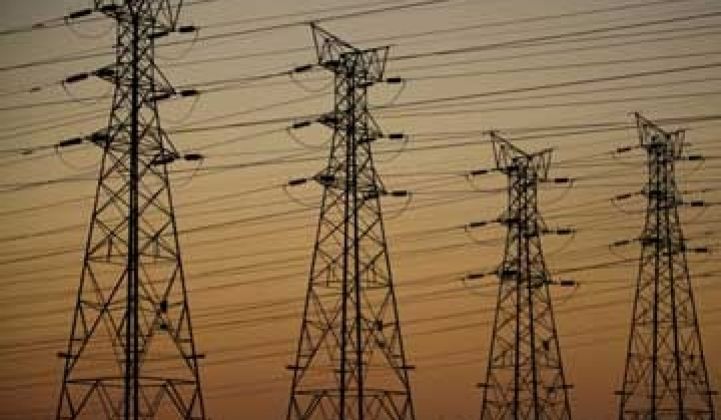Siemens Industry (NYSE: SI) just announced that it will acquire VC-funded and San Mateo, California-based meter data management company eMeter. Pricing details were not disclosed.
The eMeter platform is being used in a large number of smart grid deployments around the world. The firm will join the Smart Grid Division of the Siemens Infrastructure Group within Siemens Industry in the United States.
EMeter has received more than $70 million in venture capital funding from Sequoia Capital, Foundation Capital, and others. So, one of the questions here is whether this was a strong exit with a good multiple or a weak exit and fire sale. We will continue to investigate that. (UPDATE: eMeter has sent us a statement on this matter: "The transaction is positive for eMeter shareholders, employees, customers and partners. Everyone should be very happy. Siemens is gaining the market's leading information platform, with an established customer base in 11 countries, a strong global partner ecosystem and a highly skilled, enterprise software savvy employee base.").
But I'm guessing that Siemens will be happy with its purchase, because eMeter has done a lot of things right. The firm has an international presence, with more than 24 million meters under contract in big deployments in the United States and Europe, making it one of a handful of top-tier competitors in the meter data management software (MDMS) field -- others include Itron, Oracle and Ecologic Analytics. According to one recent market share survey, eMeter holds a 20-percent global market share in the processing of interval meter data, putting it in second place behind market leader Itron in smart meter data management and analysis at a commercial scale.
The Siemens acquisition is a big deal for eMeter, but it doesn't represent a new relationship between the two. Siemens led a $12.5 million investment in eMeter in 2008, and has been using eMeter's MDMS as part of its broader smart grid offering since then. That's helped drive business for eMeter in Europe, where the startup now works with Vattenfall in Finland and Sweden, as well as with utilities in Germany and Denmark.
In North America, big utility customers include Alliant Energy, Texas utilities CenterPoint Energy and Bluebonnet Electric Cooperative, and Canada's Toronto Hydro. EMeter is also working with Siemens on a stimulus grant-funded smart grid project with Kansas City Power & Light, which provides an interesting view of how meter data management can work alongside Siemens' distribution grid management systems.
On the home energy management front, eMeter did an interesting pilot project with utility Pepco in Washington, D.C. last year, testing out eMeter's EnergyEngage home energy management portal. The product won some accolades for getting customers to shave energy use via email, text message and web-based pricing alerts, and while it isn't that different from many offerings in the world of home energy management systems, it is well positioned to scoop up contracts with the weight of eMeter's meter data management behind it.
EMeter also has a presence in Australia and New Zealand and recently won its first customer in Taiwan, which it hopes may lay the groundwork for a role in mainland China's smart meter rollout. China is reportedly investing $180 billion in smart grid in an attempt to link the entire country by 2020. The projects will likely move much faster than smart meter rollouts in the U.S. once they get started, because China's state-owned utilities can move faster than large investor-owned utilities in the U.S., which have to go through public utility commissions.
Beyond straight meter data management and home energy, eMeter has been building up its software analysis chops, seeking to deliver utilities business value from the data they're pulling from consumers' homes, transformers, and other equipment. IBM has begun to pre-bundle the software on servers and will help eMeter promote its software even more in the market.
EMeter was also one of the first smart meter management vendors to move to the cloud in a big way via its cloud partnership with Verizon, launched in February. That could open up eMeter's suite of software products to customers that want to add on services like power theft detection or outage management to smart meter deployments that weren't built with that kind of functionality in mind, company CEO Gary Bloom told me in an interview earlier this year.
We've been wondering for awhile how eMeter might seek to find an exit for its investors, and it certainly looks like it's taking the more traditional route for smart grid companies. IPOs in the smart grid space are almost unheard of (although everyone's waiting for Silver Spring Networks to go public), whereas smart grid acquisitions have been going like gangbusters over the past year and a half. But while competitors like Scheider Electric and ABB have been making lots of purchases, Siemens has relied more on partnerships to date. Looks like the German engineering giant was taking its time to pick its first big smart grid acquisition.
(UPDATE) Chet Geshickter, Senior Analyst at GTM Research, called the eMeter acquisition a very strategic move for Siemens as it seeks to expand basic meter data management functionality to new areas like outage management and data analytics.
"The eMeter service-oriented architecture makes it possible to add new capabilities and functions," he added. "Siemens is already a strategic partners, so they must like what they see."
The acquisition does raise questions about the future of still-independent MDM players, the most noteworthy of which is Ecologic Analytics, Geshickter added. Ecologic Analytics supplies MDMS for Pacific Gas & Electric and other utilities, and held about 17.5 percent of global market share in managing interval meter data as of last year.
"It will be interesting to see if Ecologic Analytics continues as a stand-alone company or whether they find a suitor to respond" to Siemens' purchase of eMeter, he said. "MDM is clearly a big league application. Now Siemens is squared off with Oracle, Itron, Harris Computer Systems with Northstar and ESCO Technologies with Aclara."



